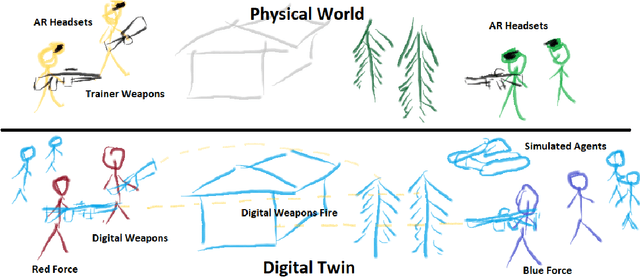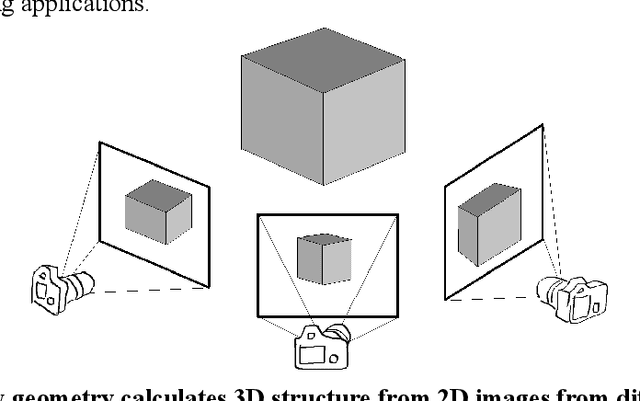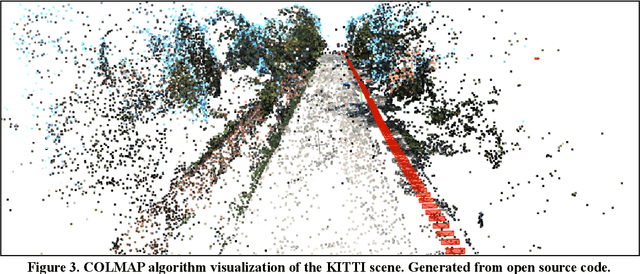Towards Live 3D Reconstruction from Wearable Video: An Evaluation of V-SLAM, NeRF, and Videogrammetry Techniques
Paper and Code
Nov 21, 2022



Mixed reality (MR) is a key technology which promises to change the future of warfare. An MR hybrid of physical outdoor environments and virtual military training will enable engagements with long distance enemies, both real and simulated. To enable this technology, a large-scale 3D model of a physical environment must be maintained based on live sensor observations. 3D reconstruction algorithms should utilize the low cost and pervasiveness of video camera sensors, from both overhead and soldier-level perspectives. Mapping speed and 3D quality can be balanced to enable live MR training in dynamic environments. Given these requirements, we survey several 3D reconstruction algorithms for large-scale mapping for military applications given only live video. We measure 3D reconstruction performance from common structure from motion, visual-SLAM, and photogrammetry techniques. This includes the open source algorithms COLMAP, ORB-SLAM3, and NeRF using Instant-NGP. We utilize the autonomous driving academic benchmark KITTI, which includes both dashboard camera video and lidar produced 3D ground truth. With the KITTI data, our primary contribution is a quantitative evaluation of 3D reconstruction computational speed when considering live video.
 Add to Chrome
Add to Chrome Add to Firefox
Add to Firefox Add to Edge
Add to Edge